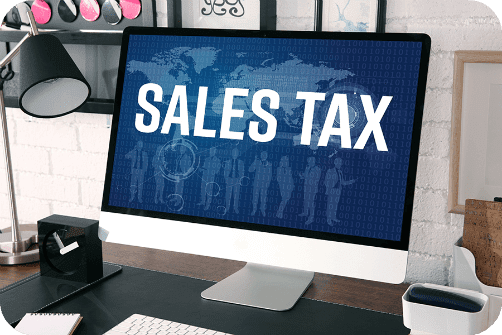(Under Construction)
Inventory Management, and
Gross Margin Optimization

Inventory is like any type of investment. You want to earn the highest return possible. Having a reliable method of tracking inventory, sales, and margin along with analyzing trends across all your channels will provide you with the tools necessary to make informed decisions. Do you want to grow?
Effective management of your inventory pipeline is the first part of growing your margins and your business.
How can we help you:
Inventory Control
- Warehouse Management
- Multichannel Selling
- Order Management
- Order Fulfillment
- Implement or migrate to the right inventory management solution or enhance what you currently use
- Data Analytics: You need the right reports, dashboards, key metrics, and more. We take this a step further and give you the ability to drill into the data for key insights
- Automation: Automation increases efficiency and lowers costs, while improving customer experience. We help you remove administrative steps
Why Choose Alto CPA Group, LLC.?
With over 28 years of financial and inventory management experience with C level businesses, we understand the drivers of a winning organization
"Support functions are as critical to a business as the product development and sales functions. Each part of the business cannot operate without the other and they need to be operating with equal strength at optimal levels. Collaboration and the right systems will synchronize these functions to provide management with the tools to support their vision." - Michael D'Amato, CPA
Great Articles:
How We Can Help You with
Inventory Management

We advise our clients on how to manage inventory as well as determining the most beneficial way to record, account, and report inventory for the highest financial and tax benefits.
Managing Inventory
Optimizing inventory levels is key to controlling costs, managing your cash flow, increasing your gross margin, and satisfying customers.

Sales Tax Accounting and Consulting

We help you stay in compliance with state laws and find exemptions which may apply to your business. If you have not been in compliance with a state’s sales tax rules, we can help you pursue voluntary disclosure agreements (VDAs) with any state.
Compliance
Whether you are considering expanding beyond state lines or your business has been selling across the states, or whether you run a brick-and-mortar company or an e-commerce business, maintaining sales tax compliance is a challenge and state and local tax authorities continue to keep it that way, We know how complicated maintaining sales tax compliance is and our focus is on this complex area which includes sales tax nexus and taxing of product in all 50 states.Our goal is for you to maintain compliance no matter where you do business.

Services
- Sales tax advice and best practices
- Sales tax filings, payments, and remittance by state through state website or mail (if required)
- Create sales tax return reports, and export liability worksheets in order to reconcile data and file returns
- New state registrations as needed
- Quarterly Economic Nexus Assessment based on sales data and other changes in circumstances
- Responding to and resolving any notices related to sales tax
Here you will find a remote seller nexus chart that is updated any time a state passes economic
nexus legislation for remote sellers. Here are standard state level sales and use tax rates.
Inventory Insights










Key Financial Steps to Prepare for Selling on Amazon
Key Financial Steps to Prepare for Selling on Amazon
Running a successful Amazon business requires a strategy and enough capital to get you through the possibility of rough patches. Here are some important tips to being a financially healthy Amazon seller:
Form your business:
- The most common business formation for a typical Amazon seller is either a sole proprietor or an LLC. However, other business entity types may be a better fit depending on your overall business concept.
- Starting off as a sole proprietor may be your best bet for simplicity and as your business grows, you should consider filing as a Limited Liability Company (LLC). LLC's are popular among small business owners because they combine the simplicity of a sole proprietor or partnership with limited liability protection that corporations offer. There are also less requirements than corporations. If problems exist with your products or if your business debts get out of control, limited liability protection keeps your personal assets safe. An LLC is a separate entity from its owner(s) whereas a sole proprietor or partnership has no separation of business from its owner(s).
- You need to let the IRS know you are setting up a business as well as getting appropriate licenses from local and state authorities. Although not required for all businesses, getting your own employer identification number (EIN) is free and recommended.
Open a Business Bank Account:
- Consider opening a separate business bank account since to make it easier to manage your finances and to file your taxes. We use Azlo Bank which has no fees. Azlo may not work for everyone, especially if you own a brick and mortar shop.
- An LLC can lose limited liability protection if personal funds are co-mingled. You can be considered a sole proprietor in the eyes of the law by co-mingling funds.
- An LLC will enhance your image as will a separate business bank account in the LLC name. Consider an 800-telephone number to further enhance your image. At go-daddy, you can get your own 800 number for as low as $9.99.
- Do not open a business bank account until you receive your EIN number.
Accept Debit and Credit Cards (if you sell outside of Amazon):
We recommend you use an integrated service like Square or Stripe, and add PayPal to the mix. You may want to opt for Shopify’s solution if you have a more diversified business. Note: Amazon will handle all credit card transactions.
Ensure you have enough cash on hand to pay your bills and for the merchandise you plan to sell. Don’t expect miracles once you begin selling so be prudent when it comes to your finances. You should have enough cash on hand for at least what’s required for the next 3 months. If you need financing to have that level of cash on hand, we can help you get the financing you need here.
Accounting Software:
Bookkeeping and accounting software is a necessity in any business, especially for keeping track of your Amazon seller business. Cloud accounting software will give you the insight you need to run your business and is vital in keeping your business disciplined. Options are plentiful and we can help you choose what’s best for your business.
Understand all of Amazon’s Fees:
You can find fees for selling on Amazon here.
Separately, Fulfillment by Amazon (FBA) fees are based on the size, weight, and where you sell your product. For example, small items weighing under 1-lb. cost just $2.41 to fill and ship or you can sell the same item on your website and pay just $5.95 for Amazon to ship it out for you. These low fees make FBA a popular fulfillment option for businesses that sell on Amazon, your company website or on eBay. Amazon streamlined its FBA fees with a new structure that is easier to understand and manage. FBA fees combine picking, packing, and shipping into one FBA fee and it simplifies inventory storage fees. You can forecast costs using the FBA calculator. For FBA fees, click here.
Tax Compliance:
- Federal Tax: Your profits from your business will “flow through” to your individual tax return if your business is set up as a sole proprietor or an LLC. As a business owner, you will be paying self-employment tax (FICA and Medicaid) as well.
- State tax: If your state has income tax, you will be taxed profits as well. You may also need to estimate and pay Federal and State taxes quarterly.
- Annual LLC Fees: If your business is an LLC, you will need to file an annual report and submit payment for the annual fee. The fee varies by state
- Sales Taxes (you will find an explanation at the end).
Product Liability Insurance:
Amazon requires you to have a policy if you are doing $10,000 in sales per month.
Use Keywords:
Keywords are equivalent to Search Engine Optimization (SEO) and they apply to selling on Amazon as well as your own eCommerce site. Other than including brand, details, color, size and other item attributes in the product description, you will need to know the specific words consumers type in searches for your type of product. Use free keyword tools for ideas.
Price Points
Don’t forget to analyze your Amazon competitors and decide what deals you want to offer and at what price. Your goal should be to get to #1 in your product category. Appearing on the Amazon home page will generate high traffic for you.
Sales tax
This is a complex topic for Amazon sellers. Majority of states require you to collect sales tax while some do not charge sales tax to your customers. Every state that requires you to collect sales tax have different rules and rates, but it is your responsibility to collect and remit the correct amount.
Some differences you will encounter:
- The type of product or service may be taxed in one state and it could be exempt in another state
- Rates vary by state so the amount of tax to be collected varies by state
- The frequency of when to file a sales tax return varies by state
- Due dates for tax remittance vary by state where some will be due on the 15th of the following month while other states request a sales tax return to be filed on the last day of the following month
Sales tax nexus:
A sales tax nexus (also called sufficient physical presence), generally refers when your business has some kind of connection to a state. All states have a slightly different definition of nexus, but most consider that a “physical presence” or “economic connection” creates nexus. Physical presence can refer to having an office, warehouse, affiliate, storing inventory (inventory going through an Amazon fulfillment center qualifies for nexus), and employee (sales agents, contractors, third party suppliers or anyone involved in your business one way or another) in the state you sell to.
Economic nexus is making a certain amount of sales in a state (either a certain dollar threshold or a number of transactions), Temporarily doing physical business in a state for a limited amount of time, such as at a trade show or craft fair also counts as nexus.
If any of the above is present in your business, then you must collect sales tax from buyers in that state. Follow these steps:
- Read up on the state’s sales tax nexus laws and focus on the details. This means you must determine the sales tax rate in each state, plus any local sales tax that might apply. For example, the sales tax rate in Beverly Hills (90210) is 9%. That includes a California state rate of 6.5%, plus a Los Angeles County rate of 1% and a district rate of 1.5%
- Is your product or service taxable? Most products and services are taxable for states where sales taxes are applicable. For example, jewelry and designer clothing are, more often than not, taxable for being premium items
What is not taxable?
Non-taxable goods vary and can include household groceries, clothing, over-the-counter and prescription drugs, vitamins and supplements, books and magazine subscriptions (digital versus hard copy), etc. etc.
Amazon Seller product tax codes:
Amazon Pro Sellers can use product tax codes (PTC), which determines your sales tax obligations for products in particular states
Sales tax permits:
You must register for permits in every state you are required to remit payments to. You can register for a permit by going to a state’s Department of Revenue site.
Sales Tax Frequency and Due Dates:
Set up reminders for sales tax filing due dates for each state whether it is monthly, quarterly, yearly, or bi-monthly. High volume sales may be required to file more frequently
Origin-Based vs. Destination-Based:
If you are based in an origin-based state, you charge the amount of state and local sales tax effective at your business’ location to everyone who you ship taxable items to in your state. So your location would be your office, warehouse, place where your inventory is stored, etc..
If you are located in a state with a destination-based state, the sales tax depends on the state address of your buyer. This means you would charge multiple sales tax rates within a state. Not to mention, some states are different based on whether you live there (home state nexus) or you are considered a “remote seller.” So, if you are a retailer in Seattle and your buyer’s shipping address is in Dallas, you will apply the sales tax in Dallas.
Filing your sales tax returns can be overwhelming as you can see. Online sales tax software helps you calculate the correct amount of sales tax to charge, but it’s up to you to ensure you are charging the correct amount.
You can file sales tax returns electronically using the state’s taxing authority website or you can manually submit forms. Do it early enough so you do not incur penalties. For a thorough explanation of Nexus, click here.
Here are a few Blog sites that can provide great insight to eCommerce and selling on Amazon:
Volusion - Check out their eCommerce Guides
My Seller Pal - Market your Amazon business

